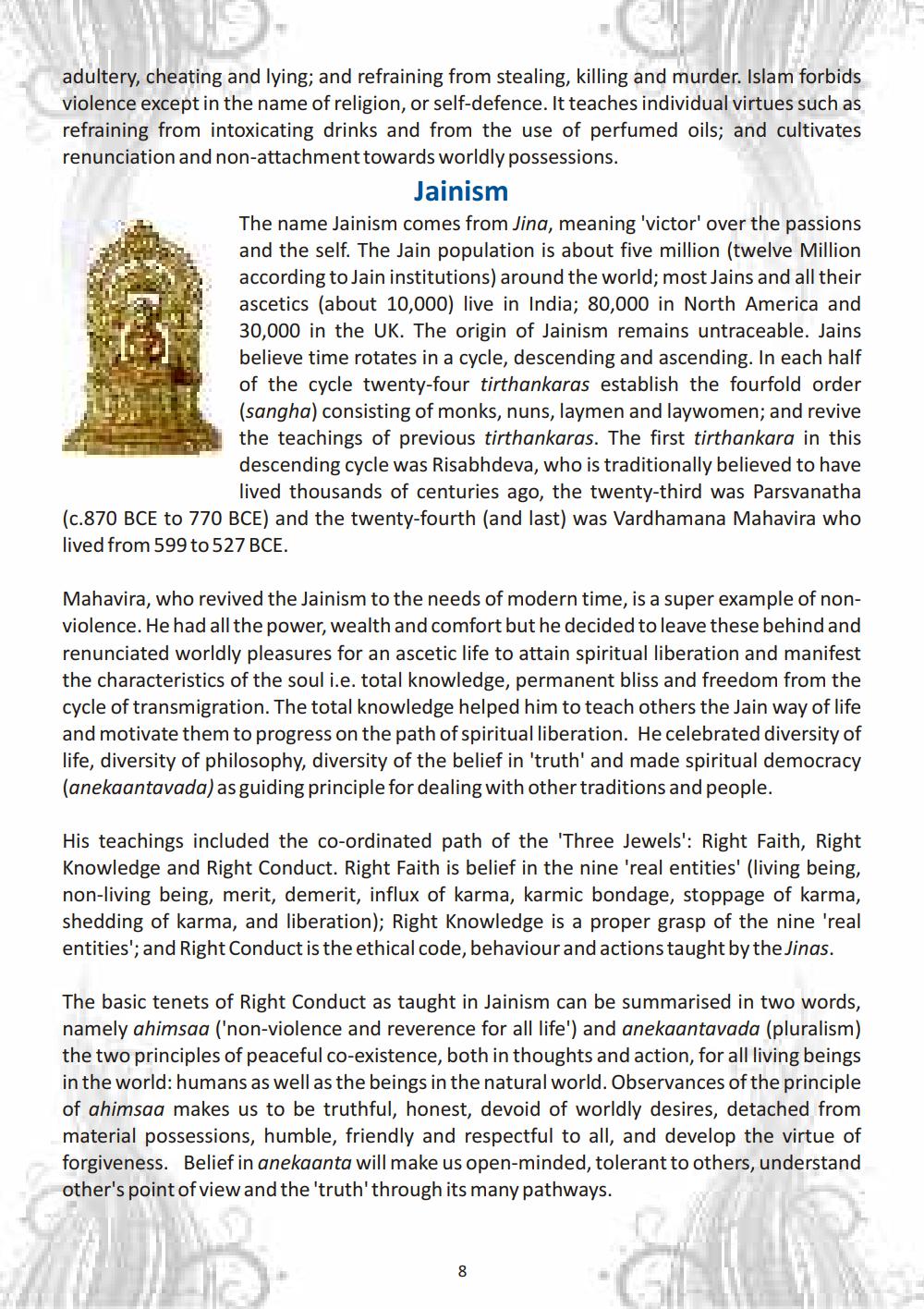Book Title: Jain Network 2010 11 Author(s): Natubhai Shah Publisher: UK Jain Network View full book textPage 8
________________ adultery, cheating and lying; and refraining from stealing, killing and murder. Islam forbids violence except in the name of religion, or self-defence. It teaches individual virtues such as refraining from intoxicating drinks and from the use of perfumed oils; and cultivates renunciation and non-attachment towards worldly possessions. Jainism The name Jainism comes from Jina, meaning 'victor' over the passions and the self. The Jain population is about five million (twelve Million according to Jain institutions) around the world; most Jains and all their ascetics (about 10,000) live in India; 80,000 in North America and 30,000 in the UK. The origin of Jainism remains untraceable. Jains believe time rotates in a cycle, descending and ascending. In each half of the cycle twenty-four tirthankaras establish the fourfold order (sangha) consisting of monks, nuns, laymen and laywomen; and revive the teachings of previous tirthankaras. The first tirthankara in this descending cycle was Risabhdeva, who is traditionally believed to have lived thousands of centuries ago, the twenty-third was Parsvanatha (c.870 BCE to 770 BCE) and the twenty-fourth (and last) was Vardhamana Mahavira who lived from 599 to 527 BCE. Mahavira, who revived the Jainism to the needs of modern time, is a super example of nonviolence. He had all the power, wealth and comfort but he decided to leave these behind and renunciated worldly pleasures for an ascetic life to attain spiritual liberation and manifest the characteristics of the soul i.e. total knowledge, permanent bliss and freedom from the cycle of transmigration. The total knowledge helped him to teach others the Jain way of life and motivate them to progress on the path of spiritual liberation. He celebrated diversity of life, diversity of philosophy, diversity of the belief in 'truth' and made spiritual democracy (anekaantavada) as guiding principle for dealing with other traditions and people. His teachings included the co-ordinated path of the 'Three Jewels': Right Faith, Right Knowledge and Right Conduct. Right Faith is belief in the nine 'real entities' (living being, non-living being, merit, demerit, influx of karma, karmic bondage, stoppage of karma, shedding of karma, and liberation); Right Knowledge is a proper grasp of the nine 'real entities'; and Right Conduct is the ethical code, behaviour and actions taught by the Jinas. The basic tenets of Right Conduct as taught in Jainism can be summarised in two words, namely ahimsaa ('non-violence and reverence for all life') and anekaantavada (pluralism) the two principles of peaceful co-existence, both in thoughts and action, for all living beings in the world: humans as well as the beings in the natural world. Observances of the principle of ahimsaa makes us to be truthful, honest, devoid of worldly desires, detached from material possessions, humble, friendly and respectful to all, and develop the virtue of forgiveness. Belief in anekaanta will make us open-minded, tolerant to others, understand other's point of view and the truth'through its many pathways.Page Navigation
1 ... 6 7 8 9 10 11 12 13 14 15 16 17 18 19 20
